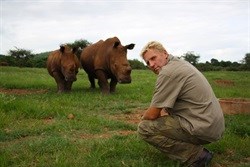
Braam Malherbe, MyPlanet Ambassador, conservationist and member of the MyPlanet Rhino Fund says, "Know where your money is going when donating to various rhino causes so that you can be sure it directly benefits rhino conservation. With this Fund you know that funds are administered by a panel of independent parties who are experts in the field."
The unique difference is that these funds are raised without requiring any donations from the supporters; funds are contributed on their behalf, when supporters use their cards at partner stores. Over the last few months the money raised by the MyPlanet Rhino Fund has gone towards several rhino conservation projects. Here is feedback on four of them:
To support and make a meaningful difference to existing rhino conservation programmes, get a free MySchool MyVillage MyPlanet card now and select the MyPlanet Rhino Fund. Apply online at www.myschool.co.za or call 0860 100 445.